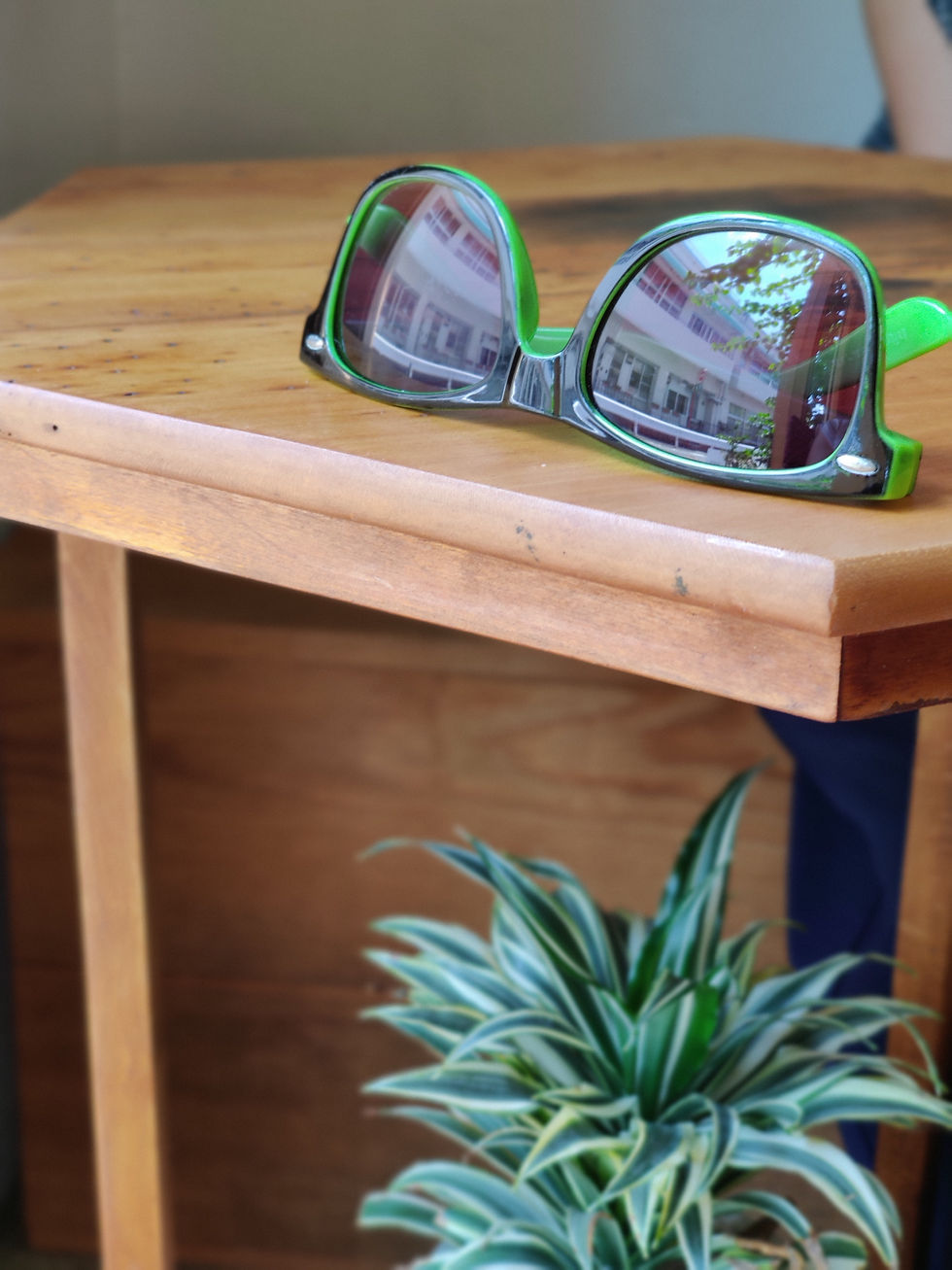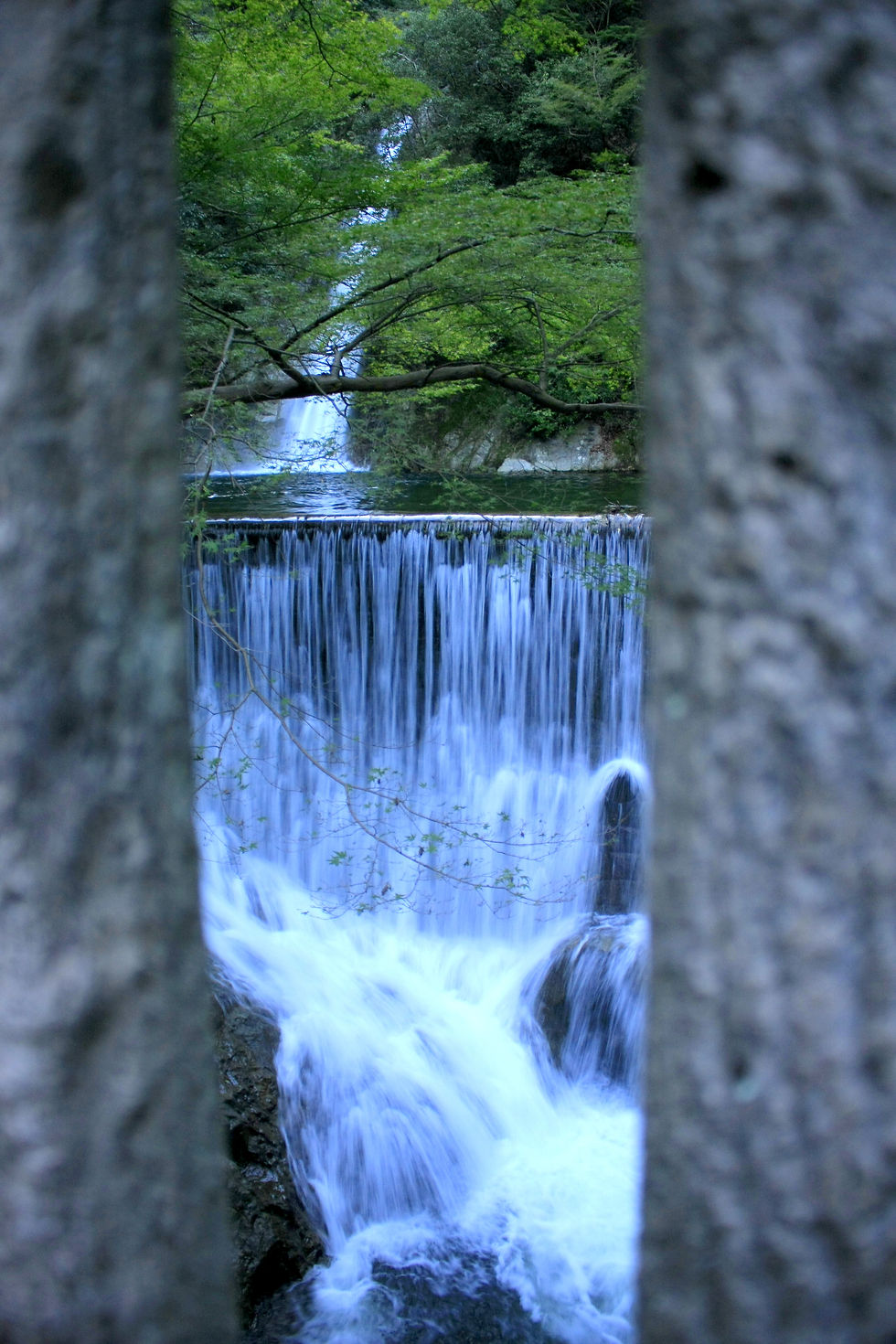The Filters That We Use・私たちが使うフィルター・我们使用的过滤器
- Ann K.

- Feb 9, 2023
- 4 min read
Updated: May 18, 2023

Sometimes, I am tempted to stick a huge piece of paper on my forehead with “FAQ” written on it so that others can read the most commonly asked questions about me without actually asking me.
Each of us has filters, the ones we use to view someone through. It doesn’t matter how open-minded you are or how global you are. It doesn’t even matter what your race or background is. We all wear our filters as if they are glasses, peering through them to see the world around us.
Once we have seen someone through our filters, we then go on to decide what expectations they match or what preconceived notions they fit into.
Our world today very often tends to focus on the fault lines. We highlight differences and only amplify the loudest voices. In such a world, it has become all too easy to develop preconceived notions about a place or people.
If you want to really know what a place is like, you got to go there.
Walk the streets.
Talk with the people.
Eat their food.
Find out something that doesn’t come through the filters you’ve become accustomed to seeing through.
The world would look a whole lot different if we choose to abandon filters built up for us by media and lies.
Instead of asking, "Where are you from?", let's ask, "Where do you feel you belong?".
In this world, we are expected to fit inside different boxes that are simply social constructs. As a dear friend of mine put it, “There is little room for the wonderful mosaic people like you.” I love this description, as it represents me as one created by putting together different colored pieces to result in a beautiful picture.
Don't forget to love the entire wonderful mosaic person you are as well as the ones who add sprinkles of joy in your life with their mosaic-ness.
~~~~~~~
時々、「よくある質問」と大きく書いた紙を額に貼り付け、他の人が実際に質問をしなくても、私がよく聞かれる質問を読めるようにしたいと考えたりします。
私たちはそれぞれ、誰かを見るために使うフィルターを持っています。どれだけ寛容的で、どれだけグローバルな人であるかは関係ない。人種やバックグラウンドも関係ない。私たちは皆、自分のフィルターを眼鏡のようにかけて、そこから周りの世界を覗いているのです。
そして、そのフィルターを通して見た人が、どんな期待に合っているか、どんな先入観にはまるのかかを判断するのです。
今日のこの世界は、しばしば断層に焦点を当てる傾向があります。違いを強調し、より大きな声だけを増幅する。そのような世界では、ある場所や人々に対して先入観を抱くことがあまりにも簡単になってしまっています。
ある場所がどんなところか本当に知りたければ、そこに行くしかないのです。
通りを歩き回り。
人々と話をし。
彼らの食べ物をいただき。
あなたが今まで見慣れてきたフィルターを通してではない何かを見つけるのです。
メディアや嘘によって作り上げられたフィルターを捨てることを選べば、世界はもっと違って見えるはずです。
「どこから来たの?」と聞くのではなく、「自分の居場所はどこだと思う?」と聞いてみよう。
この世界では、私たちは単に社会的な構築物であるさまざまな箱の中に収まることを期待されています。私の親愛なる友人が言ったように、「あなたのような素晴らしいモザイクの人々のための居場所はほとんどない。」私はこの言葉が大好きです。なぜなら私が異なる色のピースを組み合わせることで美しいモザイク(絵)である事を表現しているからです。
自分のような素晴らしいモザイクな人間を愛すること、そしてあなたの人生に喜びを与えてくれる他のモザイクな人間を愛することを忘れないで下さい。
~~~~~~~
有时,我很想在自己的额头上贴上一张巨大的纸,上面写着 "常见问题",这样别人就可以看到关于我的最常见的问题,而不用真的问我。
我们每个人都有过滤器,用来查看某人的过滤器。你有多么开明的思想,也有多么世界观。甚至你的种族或背景如何也没关系。我们所有人都像戴眼镜一样戴着过滤器,观察我们周围的世界。
一旦我们通过我们的过滤器看到某人,我们就会继续决定他们符合什么期望或他们适合什么先入为主的观念。
当今我们的世界经常倾向于关注断层线上。我们强调差异,只放大最响亮的声音。在这样的世界里,发挥关于某个地方或人民的先入为主的观念变得容易了。
如果你真的想了解一个地方是什么样的,就必须去那里。
在大街上走一走。
与当地人交谈。
吃他们的食物。
找出你不习惯查看的过滤器所没有的事情。
如果我们选择放弃媒体和谎言为我们建立的过滤器,这个世界将看起来完全不同。
与其问 "你来自哪里"?让我们问:"你觉得你属于哪里?"。
在这个世界上,我们被期望适应不同的盒子,而这些盒子只是社会结构的。正如我的一位亲爱的朋友所说,"像你这样精彩的马赛克人几乎没有空间"。我喜欢这个描述,因为它代表了我是由不同颜色的碎片拼成的,从而形成了一幅美丽的画面。
不要忘了爱你的整个精彩的马赛克人,以及那些用他们的马赛克在你的生活中添加快乐的人。





Comments